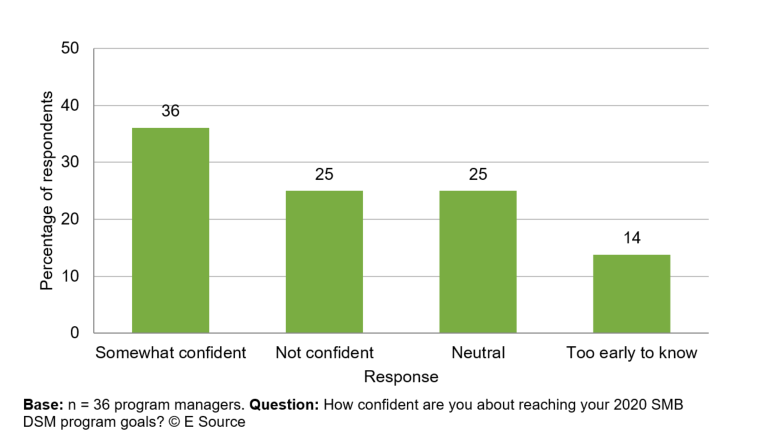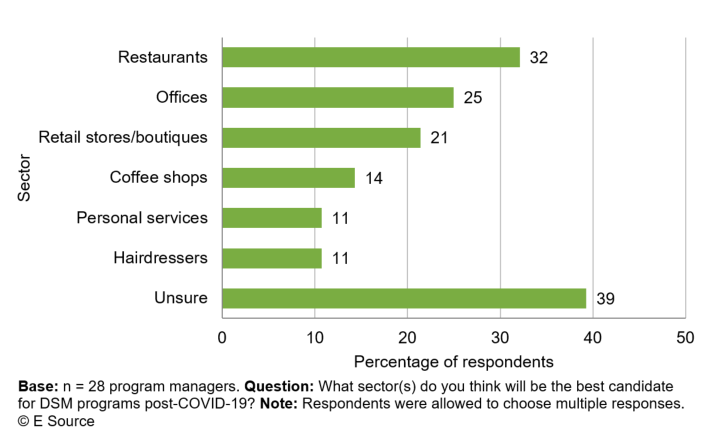On May 14, we held an exchange exploring how utilities are adjusting their demand-side management (DSM) programs to support small and midsize businesses (SMBs) during this public health and economic crisis. Here’s what we learned from the event.
Call attendees expressed mixed feelings about meeting their 2020 SMB program goals
Many SMBs across the US and Canada have temporarily or permanently closed or have been severely affected financially. We asked 36 utility program managers about how they expect COVID-19 to impact their SMB program savings targets. The majority of respondents said their direct-install SMB programs are on hold due to regional health and safety regulations.
Despite the challenges, 36% of respondents said they’re somewhat confident that they can meet their 2020 goals. Most other respondents expressed some level of uncertainty or hesitation—25% of respondents told us they’re not confident about meeting their goals and 14% said it’s too early to know how COVID-19 will affect their 2020 programs.
COVID-19 is sparking innovations in SMB program design
Current COVID-19 health and safety regulations are forcing utilities to make short-term adjustments to their SMB program portfolios:
- Five attendees reported launching or expanding their virtual energy audit and inspection options.
- One attendee’s utility launched an online marketplace for SMB customers to meet a societal desire for e-commerce. Measures offered on the marketplace include LED light fixtures and water-conservation equipment.
We also heard from one attendee who said their utility is adjusting its customer-engagement strategy in response to a sharp decline in participation in its small business energy-efficiency kit program. According to the program manager, “The idea is to have our energy advisers, who would normally be going out face-to-face [to businesses], call folks that haven’t already received a kit to talk about how we can help them and then send them a kit directly from our vendor.”
COVID-19 will affect interest in energy efficiency by sector, but it’s unclear how things will shake out
The COVID-19 pandemic response and economic crisis continue to evolve. Add to this the differences in guidance around “reopening” businesses and communities, and it’s easy to see why 40% of respondents were unsure about which sectors will be the best candidates for postpandemic energy-efficiency programs. Most attendees agreed that restaurants may be good candidates as some states and provinces are starting to allow customers to dine in.
If you’re interested in our research beyond COVID-19, consider becoming a member of the Demand-Side Management Service. To learn more about becoming a member, please Contact Us.


